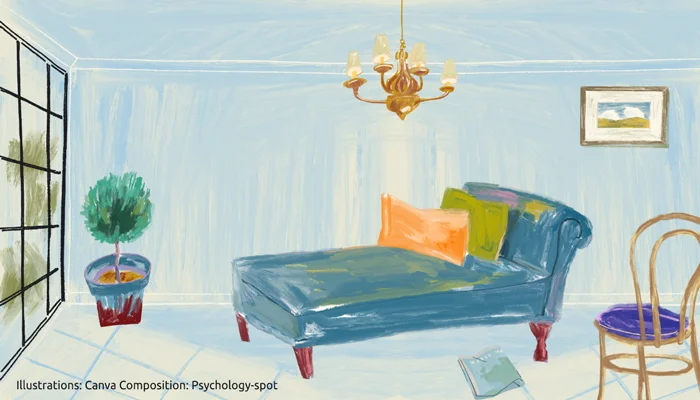
In an ideal world, we should all know and accept each other. We would teach children to take care of their mental health at school, along with Mathematics, and we would be able to deal better with adversity because we would have adequately developed our psychological resources. But since we do not live in that ideal world, sometimes we need external support, the help of a therapist who allows us to understand what is happening to us and gives us a hand to get our emotional universe back on track.
However, in recent years mental health has also begun to be romanticized, to the point that going to a psychologist has become fashionable. In the past, people were embarrassed to go to a therapist because they feared being labeled “crazy.” Now, many brag about going to the psychologist. And, although it is great that mental health is getting rid of the stigma that has followed it for centuries, perhaps we are trying to compensate in psychology consultations for what we should solve in other areas. Let me explain.
When should you not go to the psychologist?
Going to the psychologist has become popular, especially among the younger generations. This trend is influenced by factors such as the growing visibility of mental health in the media, social networks and the promotion of therapy as a tool for self-knowledge and personal growth. In this context, the psychologist is no longer seen only as a professional who treats “pathologies”, but as an ally to lead a fuller and more balanced life.
Despite the benefits that this normalization entails, some psychologists are realizing that sometimes the search for solutions in therapy is perceived as an opportunity to displace the responsibility of addressing problems in other areas of life, such as interpersonal relationships, work dynamics or time management. That is, therapy is a valuable tool, but it is not the only way to resolve all the personal challenges that arise throughout life.
Overreliance on psychological consultation could reflect an attempt to compensate or avoid directly confronting problems, many of which also require interventions in other contexts and social structures. Therefore, there are several reasons not to go to the psychologist.
1. If you are just curious or want to follow a trend
We don’t go to a psychologist only when we have a problem. We can also go when we need to make an important decision in life and we are not sure which path to follow, when we want to strengthen some aspect of our personality or we want to improve our relationships. However, going just out of curiosity, to find out what it means to go to a psychologist – probably because many of the people we know go – is not a valid reason.
Of course, if you “scratch” the surface a little, you will likely find things to work on. Absolutely everyone – including psychologists – can improve certain skills. However, if these aspects have not caused us problems, it is possible that they are not so important and that we can develop them on our own. As a rule, those who go to the psychologist out of fashion or simple curiosity end up dropping out after a few sessions or developing an unhealthy dependency on professional advice.
2. If you are just looking for a friend – or a mother or a father
We live in a hyperconnected society, but increasingly lonely. Support networks are breaking down between the daily rush and digitalization, so that many people lack the emotional support provided by friends, colleagues and even neighbors. The preponderance of liquid relationships exposes the fragility of bonds, so many people feel anxious.
Unfortunately, the psychologist cannot replace that support network. The therapist is a professional, he is not your friend nor will he become the father or mother you need. He is a sympathetic ear and a guide, but he can only be by your side during the consultation. His function is limited to analyzing behavior and emotional problems to enhance the necessary psychological skills. He is perfect for emotional catharsis and growth, but he will not accompany you for much of your life, like a friend or partner can. Therefore, he can help you improve your social skills so that you build that support network you need, but he cannot replace it.
3. If you don’t want to go to the psychologist and you are not willing to make the effort
It’s that simple. As a general rule, the majority of patients who come to consultation out of obligation, generally pushed by friends or family, make very little progress in therapy since they do not commit to change. The therapist is not a magician and, although he can try to get the person to commit to the process, when there is no internal need for change, the path is uphill and it is difficult for developmental transformation to occur.
Many wonder how to convince someone to go to a psychologist because they realize that that person needs it, but perhaps is not yet ready for the change. Maybe he wants to do it at his own pace and in his way. Or he just doesn’t want to change. Going to therapy convinced that it won’t work or thinking that you don’t need professional help is the almost perfect formula for failure. Everyone has their reasons for going to the psychologist – and for not going too.
Should everyone see a therapist?
Probably yes, at some particularly difficult moment in life, when you feel like you have lost your way or if you need guidance to cope with a situation that is disconcerting.
Therapy is like hiking poles. When you’re on easy terrain, you don’t need them and they may even bother you. However, when you face a difficult mountain climb, they become providential in helping you reach the goal safely and travel the path better.
In life, there are also times when we must use our own tools and others when we need additional outside help. Wisdom and maturity also lie in knowing how to differentiate them and having the humility necessary to seek support.
Of course, each person fights their own struggles and has their own problems. What may be stressful for one, is not for another. But it is important to be aware that a psychologist is just a professional who will hold your hand and walk by your side, asking you the right questions and teaching you the techniques to build your own poles, which will then be used for future climbs.
But to get to that point, you have to want to change, you can’t expect a therapist to build the sticks for you and piggyback you to the top. Therapy doesn’t work like that.




Leave a Reply